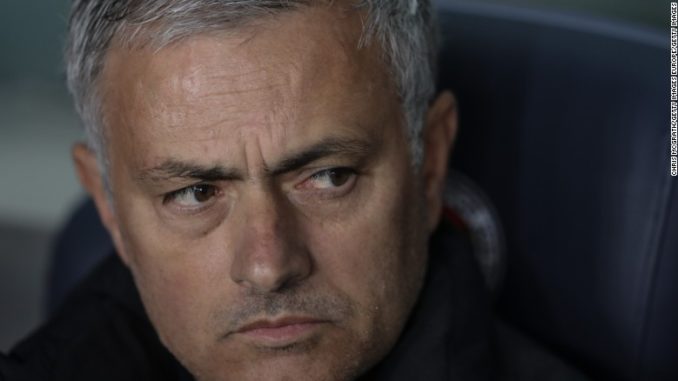
First came Wikileaks, then the NSA data hack, and now a series of “football leaks” has thrown the tax arrangements of two of soccer’s biggest personalities under scrutiny.
The alleged tax avoidance schemes of Real Madrid forward Cristiano Ronaldo and the Spanish’s club former coach Jose Mourinho, who is now manager of Manchester United, have been leaked to a number of European media outlets, including Britain’s Sunday Times, German weekly Der Spiegel and Spanish daily El Mundo.
CNN was unable to independently verify the reports, but the Gestifute agency, which represents the two larger-than-life Portuguese figures, has denied any wrongdoing by its clients.
“Both Cristiano Ronaldo and Jose Mourinho are fully compliant with their tax obligations with the Spanish and British tax authorities,” the agency, founded by super agent Jorge Mendes, said in a statement.
What are image rights?
The allegations stem from the transfer of image rights fees — worth $160 million in Ronaldo’s case — to offshore companies in areas of little or no tax jurisdictions.
The revelations have caused a stir in Spain, which has been in economic crisis for most of the past decade.
“The tax structure was created to steal from society,” said popular Spanish radio host Jose Ramon de la Morena.
“Everyone tries to do what they can within the law, but to hide money to avoid paying taxes is to steal.”
The concept of separating a star player’s club payment into two revenue strands — one considered wages for his actions on the pitch, and the other a licensing arrangement for the use of his brand, or image rights — came into play about 20 years ago with the likes of Arsenal stars Dennis Bergkamp and David Platt, according to tax expert Jeremy Cape, a partner at Dentons law firm.
The benefit to the split payments is that, unlike wages, image rights can be paid offshore legally without challenge from European tax authorities – as long as the player or manager is deemed to have enough stature.
“Mourinho has an image, Ronaldo has an image,” Cape explained. “If you’re the third choice keeper at Watford, you probably don’t have an image.”
Mourinho has deals with a car manufacturer as well as watch and casino sponsors and the start of his tenure at United was reportedly delayed by negotiations over his image rights.
Running afoul of the law
Mourinho was charged a penalty of about $1.4 million by the Spanish tax authorities and ordered to pay $4.2 million in back taxes for earnings on his image rights during his three year coaching stint at Real Madrid, which ended in 2013, according to The Sunday Times. The tax bill was later reduced in a settlement.
Mourinho also faced a tax probe in the UK for about $1.9 million in undeclared revenue from image rights he accrued during his first coaching spell at Chelsea, from 2004-2007.
Unlike the wages paid to Mourinho directly for his managerial duties — more than $180 million since 2004, according to The Sunday Times — his image rights went through a pair of companies in Ireland and the British Virgin Islands (BVI), according to the leaks.
Similar systems of fee payments for intellectual property are used by tech companies like Google and Apple, which have drawn fire for their low effective tax rates in Ireland.
In the end, Mourinho paid UK tax authorities $366,000 on the undeclared revenue of over $1.9 million in 2010 — a rate of 19% — although he admitted to a “failure to meet all my obligations under the taxes act.”
Mourniho is unlikely to have been personally aware of his taxation misdeeds, according to Cape. “I suspect there are just a handful of people in the football business who really have an understanding of how this works,” he said.
Cristiano Ronaldo’s brand
Ronaldo has used the same system to greater effect on $160 million in past and future image rights, according to The Sunday Times, which says he declared just under $25 million of it to Spanish tax authorities.
In 2014 Ronaldo surprised the business world by selling his future image rights to Singaporean businessman Peter Lim, which he described as “a very strategic move for me and my management team to take the Cristiano Ronaldo brand to the next level, especially in Asia.”
The deal was seen by many as a move to bank as much as possible before the 2015 closure of a Spanish tax break which charged select foreigners half of the normal rate of 48%, according to The Sunday Times, which reported that Ronaldo was subject to a Spanish tax probe that appears to have ended.
The “impatriado” law became known as “Lex Beckham,” or “Beckham’s Law,” after the former Real Madrid star who adopted it during his time with the club.
Chelsea and Real Madrid did not immediately respond to CNN’s request for comment, but both clubs deny any wrongdoing in the tax affairs of Mourinho and Ronaldo, according to The Sunday Times.
The source of the leaks, who released over 17 million documents, is a Portuguese whistle-blower who formerly ran the Football Leaks website.
“It is time to finally clean up football,” the source told The Sunday Times.
“The fans have to understand that with every ticket, every jersey they buy and with every television subscription, they are feeding an extremely corrupt system that is only in it for itself.”
British MP Meg Hillier, the head of the Public Accounts Committee which overseas government spending, is pushing for more action in the wake of the revelations on Mourinho.
“I think it is really important that the tax authorities take a really close look at what’s gone on,” Hillier told the BBC.
She has called on the head of HM Revenue & Customs to speak before her committee this week on “how they deal with high net-worth individuals.”
Source: CNN